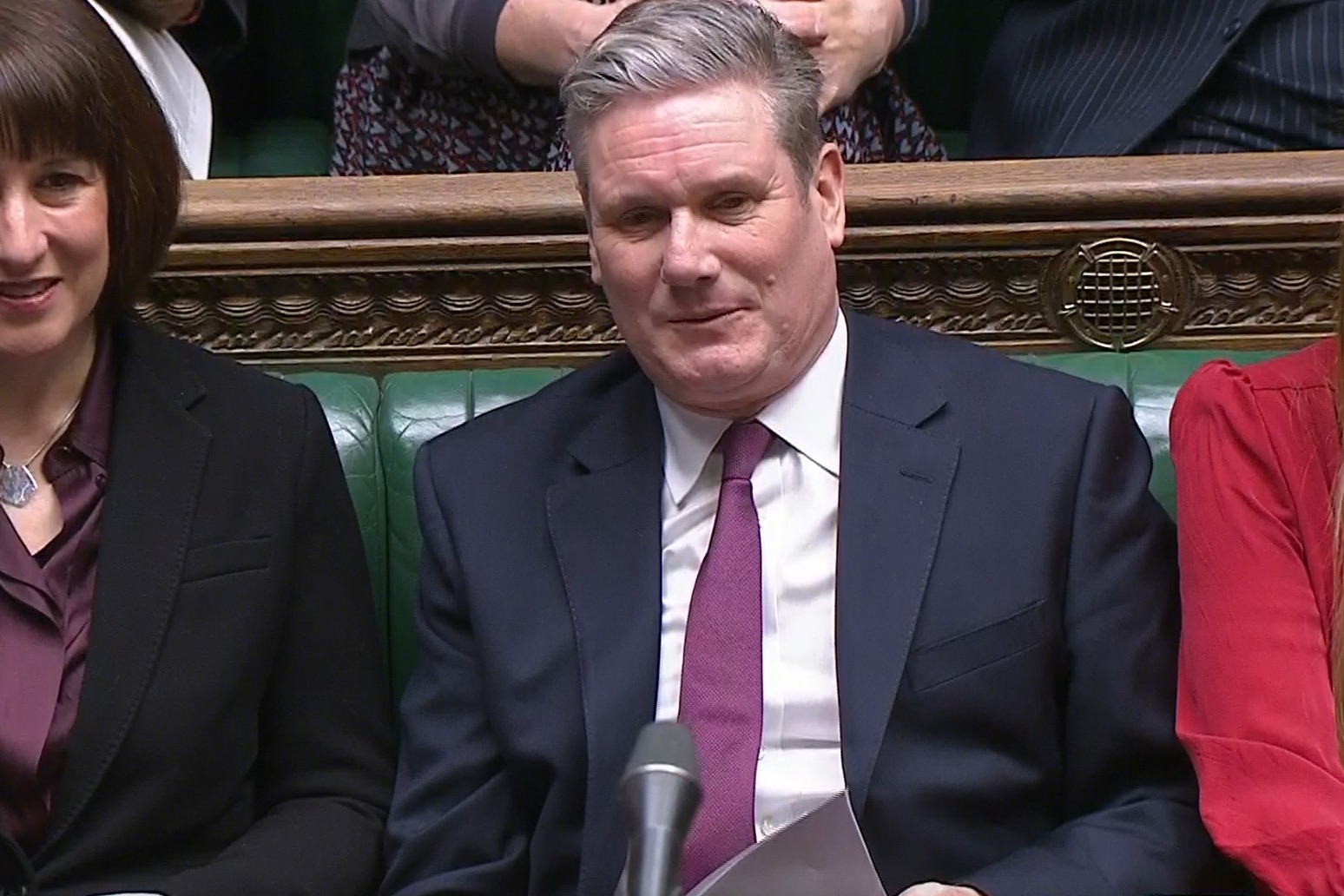
Labour to drop green spending pledge
Labour will abandon its policy of spending £28 billion a year on environmental projects in a major U-turn following months of uncertainty about the pledge.
An announcement on the party’s flagship green prosperity plan is due to be made on Thursday.
Sir Keir Starmer is expected to confirm that the pledge is being scaled back due to changes in the economic landscape since it was first unveiled in 2021.
Last year, Labour adjusted its original plan by saying the £28 billion-a-year spending target would likely be met in the second half of a first parliament, rather than immediately, if the party wins the next election.
The party has since insisted the pledge is subject to its fiscal rules, which include getting debt falling as a percentage of GDP, as it seeks to reassure voters it would handle the economy responsibly in government.
Confusion over the future of the policy has grown in recent weeks as some senior figures refused to refer to the £28 billion-a-year figure, while party leader Sir Keir continued to do so as recently as Tuesday.
Shadow chancellor Rachel Reeves has repeatedly declined to recommit to the spending pledge, instead highlighting the need for “iron discipline” with the public finances.
But earlier this week, Sir Keir said the money was “desperately needed” for the party’s key mission to achieve clean power by 2030.
The Conservatives have also seized on the figure as a key attack line in the run-up to an election this year, claiming Labour would ultimately have to raise taxes to meet the “unfunded spending spree”.
Labour has pointed to recent economic turmoil under the Tories, including the turbulence caused by Liz Truss’ mini-budget in 2022, when accused of watering down its flagship environmental pledge.
It was first announced in September 2021 by Ms Reeves, who at the time committed to spending an extra £28 billion each year to help Britain tackle climate change if the party wins power.
The U-turn would come after the Tories claimed an official Treasury costing had suggested that part of the plan – to upgrade insulation for 19 million homes – would cost more than double the party’s estimate of £6 billion.
Chief Secretary to the Treasury Laura Trott said: “This is a serious moment which confirms Labour have no plan for the UK, creating uncertainty for business and our economy. On the day that Labour are finalising their manifesto, Keir Starmer is torpedoing what he has claimed to be his central economic policy purely for short-term campaigning reasons.
“He must explain how he can keep the £28 billion spending when he is finally admitting he doesn’t have a plan to pay for it.
“This black hole will inevitably mean thousands of pounds in higher taxes for working people. That’s why Labour will take Britain back to square one.”
SNP Westminster leader Stephen Flynn said: “Keir Starmer’s damaging decision to cut energy investment will destroy Scottish jobs, harm economic growth and hit families in the pocket by keeping energy bills high.
“It’s a weak and short-sighted U-turn, which shows Westminster is incapable of delivering the investment Scotland needs to compete in the global green energy gold rush and secure strong economic growth.
“As our partners and allies across the world press ahead with investment to attract jobs and secure economic and energy security, the UK has turned away. It’s as depressing as it is predictable.”
Unite, the UK’s second largest trade union and a big Labour donor, said the “retreat” would “confirm workers’ scepticism of the endless promises of jam tomorrow and it will be ‘alright on the night’ rhetoric on the green transition”.
The union’s general secretary Sharon Graham said: “If different choices aren’t made Britain will again lag behind other nations. The German government investment bank already has in its funds equivalent to 15% of German GDP.
“The Labour movement has to stand up to the Conservatives’ false accusations of fiscal irresponsibility. There is a catastrophic crisis of investment in Britain’s economic infrastructure. Britain needs more not less investment.”
The Green Party described the U-turn as a “massive backwards step for the climate, for the economy and for good quality jobs”.
Co-leader of the party Carla Denyer said: “Labour have chosen to wear their fiscal rules as a millstone around their neck. A different approach through tax reforms, in particular by introducing a wealth tax on the super-rich, could help pay for the green transition. There is more than enough money in the economy to pay for this.”
Published: by Radio NewsHub